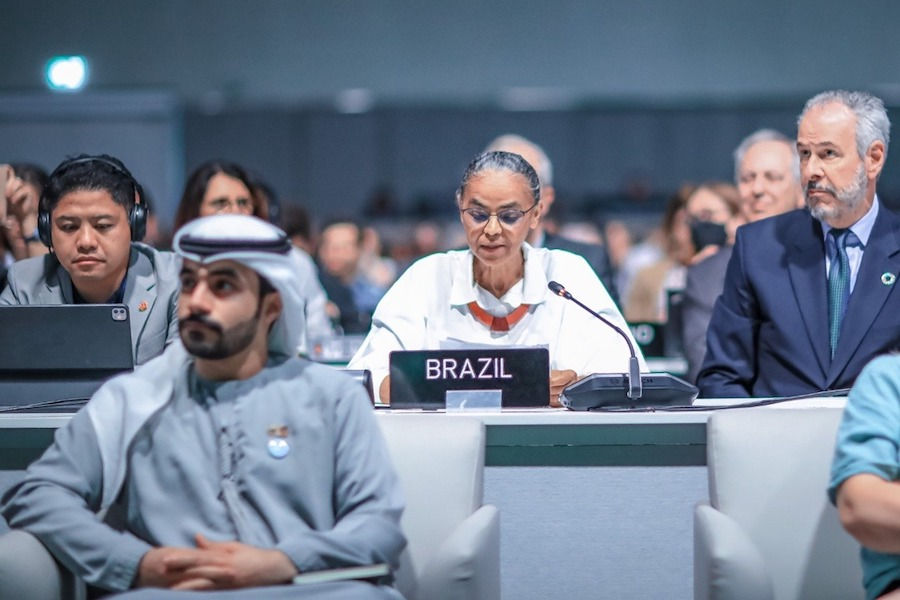COP 30: Brazil's challenges in hosting the world's biggest climate event - OPINION January 30, 2025
- Ana Cunha-Busch
- Jan 29
- 3 min read
Updated: Jan 31

COP 30: Brazil's challenges in hosting the world's biggest climate event
With the event scheduled for November this year, Brazil is already facing logistical, environmental, and political challenges.
COP 30, the 30th United Nations Climate Change Conference, will be held in November 2025 in Belém, Pará. For the first time in history, Brazil will host the main global climate event. For many, this is a milestone. For others, an immense challenge. And what does this conference mean for the country and you, reader?
Every year, the COP, or Conference of the Parties, brings together representatives from almost 200 countries to discuss climate change and propose solutions to a problem that affects everyone: global warming. Holding COP 30 in Belém has a unique symbolism. It is the Amazon being debated in the heart of the Amazon. Brazil will have to face real challenges to hold the event and, even more so, to ensure that it goes well.
The challenges of infrastructure and logistics
Belém is expected to welcome more than 40,000 visitors, including global leaders, scientists, activists, and the “COP family”, made up of UN teams and delegations from various countries. This number of people requires a prepared city, with efficient transportation, sufficient accommodation, and adequate spaces for the event.
Anyone who knows Belém knows that the local infrastructure is not up to the task of a summit of this magnitude - at least not yet. The capital of Pará faces historic bottlenecks, such as the lack of an adequate road network, basic sanitation problems, and limitations in the hotel network. Improving this in just over a year will be a race against time.
The protests and the environmental struggle
Another point that deserves attention is the demonstrations that are expected to take place during COP 30. Belém will be the scene of protests by indigenous peoples, social movements, and environmental activists, all demanding more concrete action and fewer empty promises. The event will take place at a time when the destruction of the Amazon rainforest continues to be a global concern, and the international pressure on Brazil to combat deforestation will be enormous.

Brazil's role and the risk of setbacks
Brazil has positioned itself as a leader in environmental issues in the past. At COP 15, it committed itself to reducing greenhouse gas emissions and, at COP 27, it presented the “OPEC for Forests” alliance with Indonesia and Congo. Now, with COP 30, the country has the chance to strengthen its leadership role. But there is one important detail: this leadership needs credibility.
And if there's anything that can weaken this credibility, it's international politics. With Donald Trump's victory as president of the United States, many social and environmental agendas are already taking a step backward on the global stage. In his previous term, Trump showed little willingness to commit to the climate, withdrawing the US from the Paris Agreement, and in the current term, he doesn't seem to have changed his mind. This could influence the COP30 negotiations, making them more difficult.
The opportunity and the responsibility
Despite the challenges, hosting COP30 is a unique opportunity for Brazil to show that it is committed to a sustainable future. It's time to prove that the country can lead by example, investing in renewable energies, fighting deforestation, and promoting climate justice. But it's not enough to organize a big event; what will be said and decided there needs to have a real impact.
And you, reader, also have a role to play in this. Climate change is not something distant or reserved for politicians and scientists. It affects your daily life, whether it's a more expensive electricity bill, a flood in the city, or the heat that seems to increase every year. COP 30 is an opportunity to look to the future, but that future also depends on you.
With gratitude, 🌿🌍
Anna Luisa Beserra
Founder, Sustainable Development and Water for All
LinkedIn: Anna Luisa Beserra
SDG 13





Comments